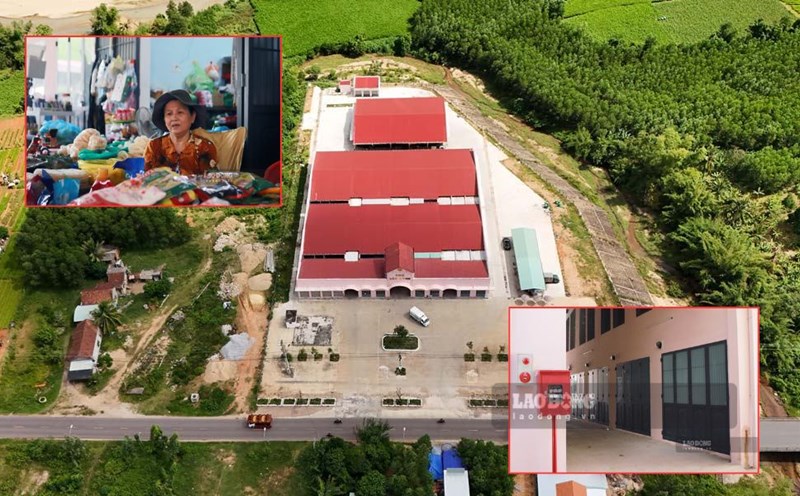According to the National Competition Commission (Ministry of Industry and Trade), in 2025, Vietnam's e-commerce will continue to expand its scale and strong growth rate, reflected in the increase in sales and sales output from the first quarter.
In addition to this growth is the market screening process, when the group of large sellers expands their market share, while small retailers are gradually narrowing. TikTok Shop has grown rapidly, dominating more market share, while platforms like Lazada and Tiki are facing many difficulties.
Along with the shift in market share and business model, logistics and digital payments also grew rapidly, creating favorable conditions for online transactions but at the same time increasing the complexity of the supply chain and arising risks.
The rapid growth of the market means many new risks for consumers, especially in the stages of payment, transportation, quality of goods and ensuring benefits after purchase. As online shopping becomes more popular, the number of consumer feedback and recommendations also tends to increase, becoming an important indicator to identify market hot spots.
In the first 9 months of 2025, the National Competition Commission received 144 complaints and recommendations from consumers in the e-commerce sector through channels such as websites, emails and post.
Consumer feedback and recommendations in the e-commerce sector in 2025 focused on the refund stage with 31 feedback applications (19%). The problem of locking or limiting accounts ranked second with 21 complaints (13%), followed by incidents related to late delivery and incorrect product delivery with 20 complaints (12.5%).
In addition, consumers also reported counterfeit, poor quality or incorrectly described goods with 11 complaints, difficulties in warranty, return for 11 complaints. Disputes arising from financial services and payment methods of "pre-buy - pay" or e-wallet have had 9 applications.
According to the National Competition Commission, the three biggest groups of issues including refunds, account locks and delivery accounted for nearly half of the total number of complaints. This not only shows that consumers' risks are concentrated in the post-transaction stage but also reflects the clear impact of the differentiation of the e-commerce market in recent times.
When the market size increases sharply but focuses on some major platforms, bottlenecks in operations - especially refunds, account management and delivery - easily spread, causing the number of reflections to increase sharply and systematically compared to previous years.
The risk of a rapid increase in refunds due to large transaction volumes makes the financial control and handling process more complicated. Reflections on account locking show an imbalance between the fraud control mechanism and the ability to protect end-user rights.
Meanwhile, delivery incidents are directly affected by logistics pressure when the number of orders increases rapidly but the transport infrastructure has not met the synchronous requirements. Other groups that reflect such as counterfeit goods, warranties or financial services, although less, are also indirectly affected, because when the market is focused on some large platforms, all weaknesses in the system are likely to amplify, affecting a large number of consumers at the same time.
According to the National Competition Commission, the reflections in 2025 are no longer disjointed but reflect the structural problems of the e-commerce market. This is an important sign for state management agencies, businesses and consumers to recognize their responsibility - not only in handling each specific case but also in strengthening transparency, improving after-sales processing capacity and ensuring consumer rights in an increasingly complex online environment.











